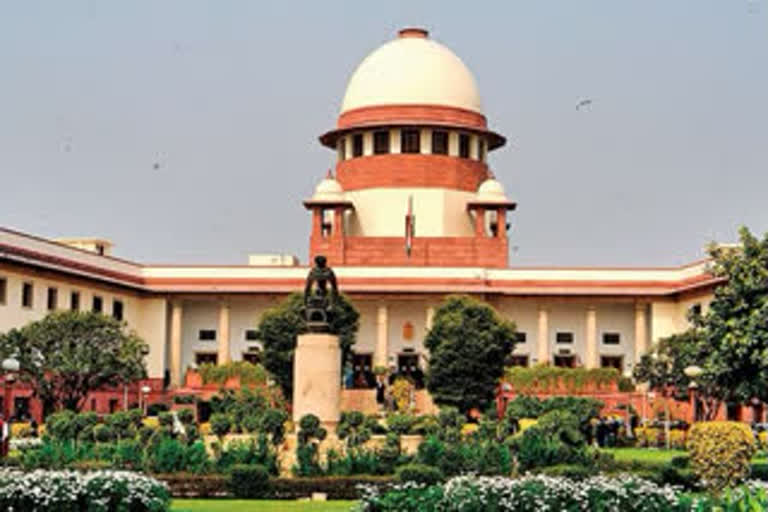New Delhi: The Supreme Court Tuesday made it clear that it can't interfere with the Centre's and Reserve Bank of India (RBI's) decision to not to extend the loan moratorium beyond August 31 last year.
Pronouncing its verdict on a batch of pleas filed by various trade associations, including from real estate and power sectors, seeking extension of the loan moratorium period, the apex court further clarified that it cannot do judicial review of the Centre's financial policy decision unless it is malafide and arbitrary.
Last year, the RBI directed banks to provide for a six-month moratorium period to customers on payment of interest as well as principle on a variety of loans ranging from personal loans, home loans, vehicle loans and education loans up to Rs 2 crore. The moratorium period began on March 1 and ended on August 31.
During the moratorium period, banks were allowed to not to collect interest on interest and penalties for not paying the equated monthly instalment (EMI) by due date.
In last November, those borrowers who paid EMIs on time got refunds equal to the difference between the interest and compound interest.
Complete waiver of interest affects depositors
The bench headed by Justice Ashok Bhushan further said that the waiver of complete interest is not possible as it affects banks depositors.
"The Covid-19 pandemic had affected the entire country. We can not ask the government to announce further relief as it has lost on taxes due to the lockdown," said the court.
The Centre had earlier submitted before the top court that if it were to consider waiving interest on all the loans and advances to all categories of borrowers for the six-month moratorium period announced by RBI, then the amount foregone would be more than Rs 6 lakh crore.
If the banks were to bear this burden, then it would necessarily wipe out a substantial and a major part of their net worth, rendering most of the lenders unviable and raising a very serious question mark over their very survival, it had said.
The government had said this was a main reason as to why waiver of interest was not even contemplated and only payment of instalments was deferred.
Giving an illustration, it had said that in case of State Bank of India alone, waiver of six months' interest would completely wipe out over half of the bank's net worth which has accumulated over nearly 65 years of its existence.
(With PTI Inputs)
